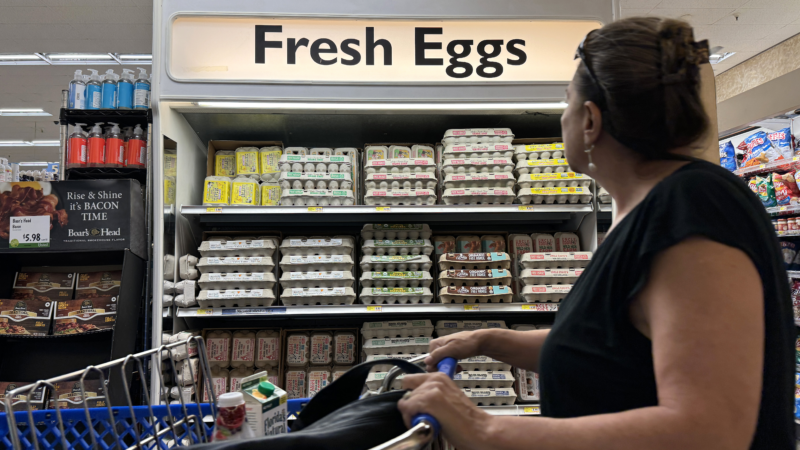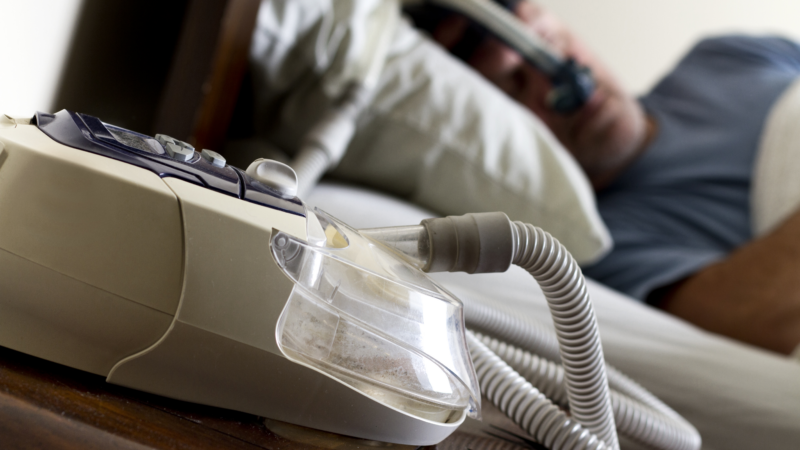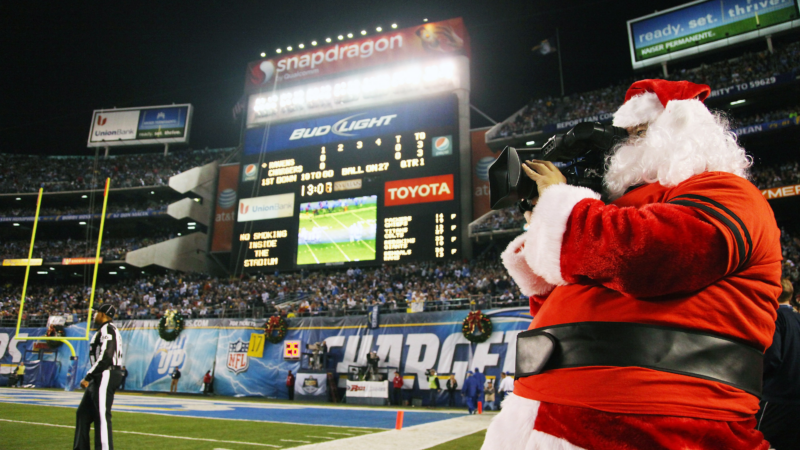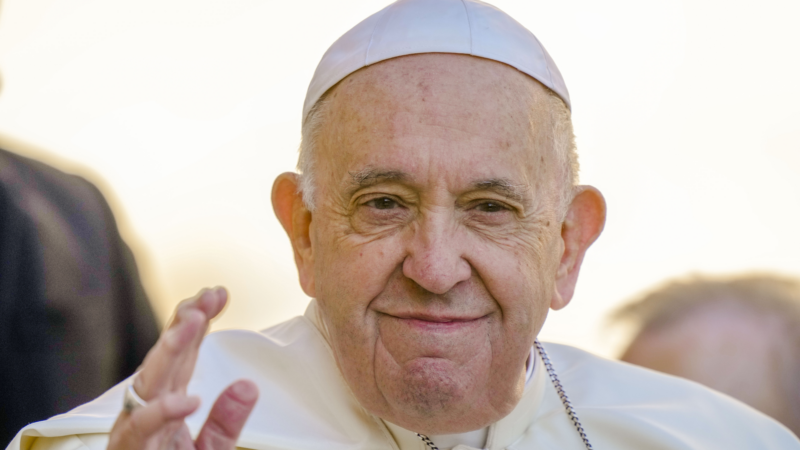Why high prices toppled Democrats — and other governments around the world
This year’s election results made one thing clear: People really don’t like paying more for everyday expenses.
And when prices soar, the politicians who are in power often pay for it — as Vice President Kamala Harris and Congressional Democrats experienced firsthand.
Among those fed up with the high cost of living was Theresa Wolfe, a Trump supporter in St. Petersburg, Fla.
“It affects my budget and everyone I know, because we’re paying more for groceries,” she says. “It’s shocking. I mean I had a heart attack at Publix when a bag of tortilla chips, I think it was $7.99.”
A survey by the Associated Press found high prices were the number one concern for about half of all Trump voters. They punished Harris and other Democrats, just as inflation-weary citizens have toppled governments around the globe — from Italy and Argentina to Pakistan and the U.K.
The Labor Department’s latest cost of living report is set to be released on Wednesday. Even though inflation has cooled significantly — from a peak of 9.1% in June of 2022 to 2.4% this September — many voters remain unhappy with the cumulative price hikes of the last two years.
“Even my daughter, who’s a liberal, is a Trumper,” says Wolfe. “We’ve had enough.”
Loading…
Inflation can topple governments
Maziar Minovi, CEO of the Eurasia Group, has studied the political reaction to dozens of inflation spikes going back decades and found the party in power was about twice as likely as usual to be ousted.
“When there is an inflationary shock across the world, the risk of the incumbents getting kicked out — no matter what party or persuasion they are — goes up a lot,” he told NPR.
Minovi’s research shows voters aren’t inclined to forgive inflation, even when — as in this case — it’s happening all over the world.
“It also didn’t seem to matter much to voters if the price surge occurred in isolation or was part of a global inflationary shock,” Minovi and his colleague Robert Kahn wrote in a research note to clients. “Throw the bums out either way.”
Prices soared in many countries in recent years, primarily because of the supply shocks that followed the pandemic and the war in Ukraine. But policymakers in the U.S. may have amplified the price pressures by pumping trillions of dollars into an economy that couldn’t keep up with the resulting jump in demand.
That started during the Trump administration and continued under President Biden, when Democrats in Congress passed the $1.9 trillion American Rescue Plan.
Burned by the sluggish recovery after the Great Financial Crisis, when they felt the government hadn’t acted boldly enough, Democrats were determined not to make the same mistake.
“I think the price of doing too little is much higher than the price of doing something big,” Treasury Secretary Janet Yellen told CNBC early in 2021. “We think the benefits will far outweigh the costs in the longer run.”
Going big did help the economy
There was a payoff for going big this time. Employers added millions of jobs. The tight labor market forced businesses to offer higher wages. And the U.S. economy bounced back faster from the pandemic recession than most other countries.
Still, in the minds of many Americans, those gains were outweighed by the soaring cost of living.
“Economists are going to have to reckon with the fact that the public would have preferred a slower recovery with much higher unemployment, as long as prices had been stable,” University of Michigan economist Betsey Stevenson tweeted.

After all, former President Barack Obama handily won re-election in 2012, even though the unemployment rate was still 7.7%.
It’s not clear how much lower inflation might have been with a less aggressive government response. Other countries did less to cushion the blow from the pandemic, but still suffered big price shocks and similar political fallout.
“People were just pissed off. And they voted incumbents out,” says Ernie Tedeschi, an economist who served in the Biden administration and is now with the Yale Budget Lab.
Humbling moment for economists too
The Economist magazine ran a cover story last month calling the U.S. economy “the envy of the world.” But frustrated voters dismissed talk of easing inflation and other rosy statistics. After all, you can’t eat GDP.
“We as economists have to be humble that those sorts of measures don’t speak to normal people,” Tedeschi says. “And normal people have other measures that speak to their well-being.”
President-elect Trump hasn’t offered a real prescription to lower prices, other than increased oil drilling.
And economists say some of his proposals — like sweeping tariffs and mass deportation — would likely make inflation worse.
Nevertheless, millions of voters like Theresa Wolfe were frustrated enough with the current cost of living to take a chance on Trump.
“I have to tell you, my first reaction was relief,” Wolfe said after Trump’s election. “It’s a historical comeback and the people have spoken.”
Transcript:
SCOTT SIMON, HOST:
Maybe the major lesson you might take from this week’s election is that people don’t like to pay more for everyday expenses. When inflation takes off, the politicians in power often pay for it. NPR’s Scott Horsley reports.
SCOTT HORSLEY, BYLINE: People have lots of reasons for voting the way they do – immigration, the culture wars. But undoubtedly, one of the biggest drivers for voters backing Donald Trump was inflation.
THERESA WOLFE: It affects my budget and everyone I know because we’re paying more for groceries. It’s – actually, it’s shocking.
HORSLEY: That’s Theresa Wolfe, who lives in St. Petersburg, Florida. We first spoke a few months ago, and she told me how unhappy she was about the high cost of living, not just groceries but rent and insurance, too. So I called her back this week to hear how she’s feeling after the election.
WOLFE: I have to tell you my first reaction was relief.
HORSLEY: Trump and other Republicans hammered on inflation throughout the campaign, and that message hit a nerve.
(SOUNDBITE OF ARCHIVED RECORDING)
DONALD TRUMP: We’re going to make America wealthy again, and we’re going to make America affordable again. We have to get the prices down.
HORSLEY: A survey by The Associated Press found high prices were the number one concern for about half of all Trump voters. And that’s not a surprise. Maziar Minovi, who heads the Eurasia Group, has studied dozens of elections going back decades and found whenever there’s a sustained period of high inflation, voters are twice as likely to lose faith in the people running the government.
MAZIAR MINOVI: When there is an inflationary shock across the world, the risk of the incumbents getting kicked out – no matter what party or persuasion they are – goes up a lot.
HORSLEY: And Vice President Harris was saddled with that incumbent label. The most recent bout of high inflation has toppled governments around the world, from Italy and Argentina to Pakistan and the U.K.
ERNIE TEDESCHI: People were just pissed off, and they voted incumbents out.
HORSLEY: Ernie Tedeschi is an economist who served in the Biden administration and is now with the Yale Budget Lab. The worldwide inflation spike was primarily driven by the aftershocks of the pandemic and the war in Ukraine. But policymakers in the U.S. may have amplified the price pressure by pumping trillions of dollars into the economy. That started during the Trump administration and continued under President Biden when Democrats in Congress passed the $1.9 trillion American rescue plan. Speaking on CNBC early in 2021, Treasury Secretary Janet Yellen urged lawmakers to go big.
(SOUNDBITE OF ARCHIVED RECORDING)
JANET YELLEN: I think the price of doing too little is much higher than the price of doing something big. We think that the benefits will far outweigh the costs in the longer run.
HORSLEY: That thinking was informed in part by the sluggish recovery after the great financial crisis when Democrats felt the government hadn’t done enough to boost the economy. And there was a payoff this time for going big. Employers added millions of jobs. Unemployment fell to its lowest level in decades and the U.S. economy bounced back faster than most other countries. Still, in the minds of many Americans, those gains were outweighed by the soaring cost of living. Tedeschi acknowledges you can’t eat GDP.
TEDESCHI: We as economists have to be humble that those sorts of measures don’t speak to normal people and that normal people have other measures that speak to their well-being.
HORSLEY: Maybe he says people would have preferred a more sluggish recovery so long as it came with lower prices. After all, Barack Obama handily won reelection in 2012, even though the unemployment rate was still 7.7%. Trump hasn’t offered a real prescription to lower prices other than increased oil drilling, and economists say some of his proposals – like sweeping tariffs and mass deportation – would likely make inflation worse. Nevertheless, millions of voters like Theresa Wolfe were frustrated enough to take a chance.
WOLFE: The facts are if inflation was where it should be and food prices had come down and rents are under control, honestly, I don’t think there’s any way that Trump would have been reelected.
HORSLEY: Scott Horsley, NPR News, Washington.
Sudan’s biggest refugee camp was already struck with famine. Now it’s being shelled
The siege, blamed on the Rapid Support Forces, has sparked a new humanitarian catastrophe and marks an alarming turning point in the Darfur region, already overrun by violence.
FDA approves weight loss drug Zepbound to treat obstructive sleep apnea
The FDA said studies have shown that by aiding weight loss, Zepbound improves sleep apnea symptoms in some patients.
Netflix is dreaming of a glitch-free Christmas with 2 major NFL games set
It comes weeks after Netflix's attempt to broadcast live boxing between Jake Paul and Mike Tyson was rife with technical glitches.
Opinion: The Pope wants priests to lighten up
A reflection on the comedy stylings of Pope Francis, who is telling priests to lighten up and not be so dour.
The jury’s in: You won’t miss anything watching this movie from the couch
There's been a bit of consternation flying around about the fact that the theatrical release of Juror #2, directed by Clint Eastwood, was very muted. But this movie is perfect to watch at home.
The FDA restricts a psychoactive mushroom used in some edibles
The Food and Drug Administration has told food manufacturers the psychoactive mushroom Amanita muscaria isn't authorized for food, including edibles, because it doesn't meet safety standards.







